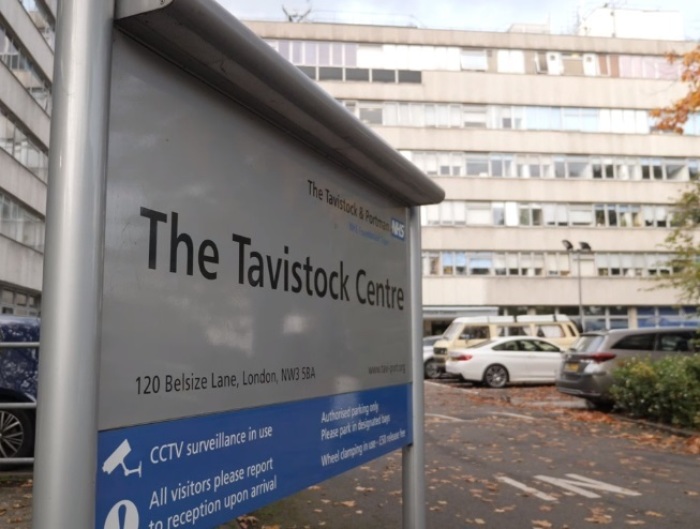Tavistock gender clinic 'not safe' for children, NHS report finds

A London clinic known for recommending puberty blockers for children suffering from gender dysphoria and encouraging teenagers to undergo surgeries to remove their genitals or breasts was found to be operating outside of NHS safeguards following an investigation.
The Tavistock clinic, run by the Tavistock and Portman NHS Foundation Trust, England's lone specialist clinic for children and youths who are confused about their gender, was found to be performing services that are "not safe or viable," such as prescribing opposite-sex hormones to children as young as 10, which can lead to early onset of osteoporosis and other ailments.
In a report released this week, Dr. Hilary Cass, a retired pediatrician who was commissioned by NHS England to investigate services at the clinic, said services administered to children and young people had somehow escaped the NHS’ “normal quality controls,” The Times reported.
Findings in the report validate whistleblowers who have warned that the clinic does not follow prescribed safeguards and clinical standards.
The Tavistock clinic made headlines in 2018 after Dr. David Bell, a psychiatrist, released a detailed whistleblower report about the experimental procedures that were being performed on children. The report said clinicians were fast-tracking young adults into medicalized gender transitions without fully exploring the contributing factors that led to their psychological distress.
From about 50 referrals in 2009, the number of referrals the clinic received increased to 2,500 in 2020, mostly from females who started suffering gender identity issues in their early teens, with a further 4,600 young people on the waiting list, according to the Times.
Cass’ report said, “Because the specialist service has evolved rapidly and organically in response to demand, the clinical approach and overall service design has not been subjected to some of the normal quality controls that are typically applied when new or innovative treatments are introduced.”
About a third of referrals to the Gender Identity Development Service (GIDS), a clinic within the Tavistock facility, have autism or other types of neurodiversity, and “looked after” children in local authority homes or foster care have an over-representation, the newspaper added.
Cass also said in the report that GIDS has not consistently collected data about service users and their outcomes cannot justify the approach to treatment.
Many senior staff at the clinic have left due to disagreements with the leadership over the best way to treat vulnerable young people with complex histories.
Responding to the report, Kate Grimes, a retired hospital manager, was quoted as saying that she felt “relief that finally the NHS is looking at this seriously. Relief for the patients currently being harmed. Relief for the staff who have felt unable to speak out.”
In December 2020, the high court ruled against the Tavistock and Portman NHS Foundation Trust, saying minors aged 16 and younger are not capable of giving informed consent to experimental practices such as puberty-suppressing drugs and cross-sex hormones in pursuit of changing their physical appearance to look more like the opposite sex.
The court also held that the clinic’s record-keeping was substandard, and it hadn't adequately maintained data regarding how many patients were being treated who are autistic. Those findings mirrored the concerns Bell had previously raised in his 2018 review, which was first set in motion when 10 members of the GIDS staff spoke to him about their own alarm at what they saw happening.
However, last September, the court of appeal overturned the judgment that children younger than age 16 were unlikely to be mature enough to give informed consent to be prescribed puberty-blocking drugs, according to The Guardian.
In Bell’s 2018 review, one of the concerned staffers recounted how an 8-year-old child was referred to an endocrinologist for the experimental drugs. Another staffer reportedly told him: “I could not go on like this … I could not live with myself given the poor treatment the children were obtaining.”
Yet when he submitted the report, the Trust was not receptive. Instead, they were defensive.
“I believed I was doing the right thing,” he said of his efforts to document the unscrupulous practices at the time. “I never doubted that, and most of my colleagues in the adult department supported me, so when I went up to my floor at the Tavistock, I could be oblivious and get on with my work. The real betrayal wasn’t of me personally, but of the Trust’s duty to whistleblowers and to its wider mission.”
The institution, however, tried to squelch his voice, he said. They did this by telling media outlets that Bell’s claims were historical and that the clinic was following proper protocols, the Guardian reported. The tactics they used were sinister, he added.
After he submitted his 2018 review, the clinic removed a book, for which he had written the introduction, from its library. The clinic also sent a GIDS staffer to spy on him when he spoke at a conference in Manchester about de-transition — the process formerly trans-identified individuals go through to return to their birth sex. Bell was eventually told that he was not allowed to speak publicly or write about anything not connected to his employment within the NHS.





























